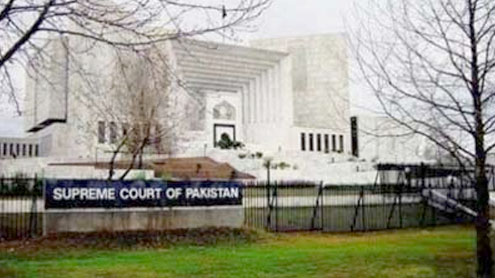 ISLAMABAD: Chief Justice of Pakistan (CJP) Iftikhar Muhammad Chaudhry observed on Thursday that military governments had no public mandate, however the democratic dispensation had no solution to public problems despite having public mandate.
ISLAMABAD: Chief Justice of Pakistan (CJP) Iftikhar Muhammad Chaudhry observed on Thursday that military governments had no public mandate, however the democratic dispensation had no solution to public problems despite having public mandate.
The chief justice was heading a two-member Supreme Court bench, which also included Justice Khilji Arif Hussain, hearing a suo motu case coupled with two identical petitions filed by Federal Housing and Works Minister Faisal Saleh Hayat and Pakistan Muslim League-Nawaz (PML-N) MNA Khawaja Asif involving allegations of corruption in the contracts of Rental Power Plants (RPPs).The chief justice questioned who would be responsible if the democratic government did not solve the people’s problems, adding that a democratic government had the mandate to solve the issues faced by the country.
During the hearing, when Khawaja Tariq Rahim, counsel for the Pakistan Electric Power Company (PEPCO), submitted that the country was facing problems left by the military government, the chief justice remarked that the military government did not have public mandate, thus the democratic government should respect the public mandate it had and solve the people’s issues.Abdul Hafeez Pirzada, counsel for Reshma Power Plant and Techno Power, told the court that the government approved installation of 19 power plants, however there was no possibility of launching half of them, adding that at present only five power plants were functioning. He said the RPPs that had started work were not being provided fuel.
Justice Hussain asked him why fuel was not being supplied to the RPPs, and Pirzada replied that only the government could answer the question. The chief justice noted that the people were thinking what was going on in the country as the RPPs were started without inviting tenders. He said talks were underway to seek loans from the International Monetary Fund (IMF) and World Bank while the country was already under the burden of $67 billion in loans.Pirzada said his clients were expecting that the court would give its decision in the best interest of the nation. The chief justice said the court always gave its decisions in the best interest of the nation.
Rahim assured the court that he would present details pertaining to the transparency of the RPPs besides giving details if there were any complaints registered against the companies involved in the projects.He said parliament had already debated for five days on RPPs, adding that if any parliamentarian failed to turn up at the debate, it did not mean that parliament had not discussed the issue.He said a presentation was also given to the Public Accounts Committee (PAC) headed by National Assembly Opposition Leader Chaudhry Nisar Ali Khan while Khawaja Asif was also a member of the committee.
The court asked him whether both parliament and the PAC gave a clean sheet to the RPPs project. The counsel for PEPCO said no objections were raised during the presentation of the projects.He said the court was provided wrong information that Rs 50 billion was embezzled in the contracts of the RPPs. He said the government had paid Rs 18 billion as mobilisation advances to the companies to initiate the project so there was no justification for accusations that Rs 50 billion had been embezzled.
The chief justice asked him whether the government had made any viable policy in this regard. Rahim then said the RPPs had been approved by the cabinet and Economic Coordination Committee (ECC) during the government of former prime minister Shaukat Aziz. Later, the court adjourned further hearing until Friday (today). – PT












